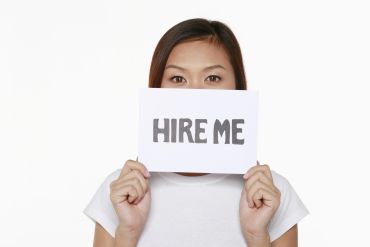Wednesday February 15, 2012
Lim May Lee
It is completely possible to mess up your chances of getting hired even AFTER you’ve gotten interviewed!
We all get excited over the prospect of a new job; and excited people are generally impatient people. And, of course, nobody likes the idea of disappearing into a crowd of interviewees in the interviewer’s mind, hence the desire to follow up on an interview. Which, in theory, is a great idea. Done right, you can provide that extra blast of charm and professionalism that says “Hire me – I am personable, self-motivated and I want that job!”
Done WRONG, however, and you can go from “friendly” to “freaky.”
Here are some examples:
Friendly: Sending your interviewer(s) an email saying “Thank you for your time” is great! This way, even if there were 20 other candidates after you, you’ll pop right back into their consciousness with extra bonus points for being appreciative and polite. This can do wonders for your chances of getting hired.
Freaky: Spamming your interviewers with a barrage of email messages is NOT COOL. Besides bordering on the illegal, spam is annoying. Try to curb your enthusiasm, and practise deep breathing techniques for patience. If they call, celebrate! If they don’t, well then, there are plenty of other fish in the sea.
Friendly: If you were given a specific time frame within which they would contact you with a concrete yea or nay, it is more than acceptable if you contact them after the window of time has passed and you have not heard from them. A casual-sounding (keyword: casual!) email asking after his or her health, and a short statement regarding the lapsed time frame should suffice. Keep it short, keep it sweet. They will respond!
Freaky: “YOU SAID YOU WILL REPLY,” complete with repeated phone calls. Please. No. Give them some wiggle room! Maybe they’re delayed because they’re trying to reach a difficult decision. Maybe it is down to you and another candidate. Freaking out and baring your impatience to the most important people – at this moment, anyway – may just help them make their decision; and hint: It won’t be in your favour.
 This probably won't work, either
This probably won't work, either
All in all, do stay polite and professional at all times, and remember that patience is a virtue. As Titi Goh, HR executive for Grey Group says, “The normal turnaround time for HR to get back to you is about seven working days to two weeks.” She explains that if candidates do not receive any word from the company within that period, they can drop an email or give HR a call. However, “Do not keep insisting,” she cautions, saying that it can be very hard for companies, especially multinational ones, to give quick replies as they may have higher-ups in other countries whose final calls are delayed due to many factors. Goh also suggests that candidates do not pin all their hopes on only one company. “Search around and give yourself more options.”
And really, that’s what you should always keep in mind. Instead of insistently contacting one company, spread your net wider and try your luck with other companies as well! Remember though, one followup (per company) should be enough.